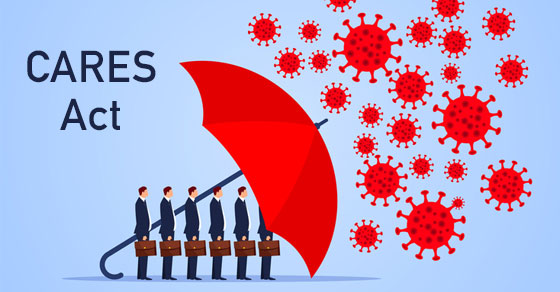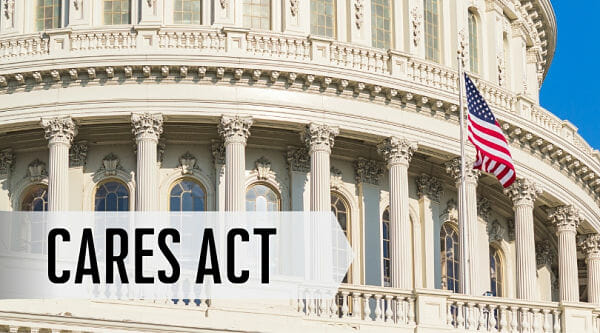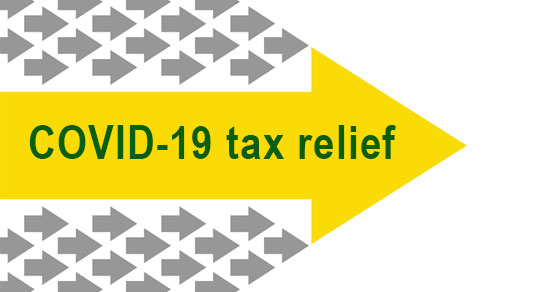On March 27, President Trump signed into law another coronavirus (COVID-19) law, which provides extensive relief for businesses and employers. Here are some of the tax-related provisions in the Coronavirus Aid, Relief, and Economic Security Act (CARES Act).
Employee retention credit
The new law provides a refundable payroll tax credit for 50% of wages paid by eligible employers to certain employees during the COVID-19 crisis.
Employer eligibility. The credit is available to employers with operations that have been fully or partially suspended as a result of a government order limiting commerce, travel or group meetings. The credit is also provided to employers that have experienced a greater than 50% reduction in quarterly receipts, measured on a year-over-year basis.
The credit isn’t available to employers receiving Small Business Interruption Loans under the new law.
Wage eligibility. For employers with an average of 100 or fewer full-time employees in 2019, all employee wages are eligible, regardless of whether an employee is furloughed. For employers with more than 100 full-time employees last year, only the wages of furloughed employees or those with reduced hours as a result of closure or reduced gross receipts are eligible for the credit.
No credit is available with respect to an employee for whom the employer claims a Work Opportunity Tax Credit.
The term “wages” includes health benefits and is capped at the first $10,000 paid by an employer to an eligible employee. The credit applies to wages paid after March 12, 2020 and before January 1, 2021.
The IRS has authority to advance payments to eligible employers and to waive penalties for employers who don’t deposit applicable payroll taxes in anticipation of receiving the credit.
Payroll and self-employment tax payment delay
Employers must withhold Social Security taxes from wages paid to employees. Self-employed individuals are subject to self-employment tax.
The CARES Act allows eligible taxpayers to defer paying the employer portion of Social Security taxes through December 31, 2020. Instead, employers can pay 50% of the amounts by December 31, 2021 and the remaining 50% by December 31, 2022.
Self-employed people receive similar relief under the law.
Temporary repeal of taxable income limit for NOLs
Currently, the net operating loss (NOL) deduction is equal to the lesser of 1) the aggregate of the NOL carryovers and NOL carrybacks, or 2) 80% of taxable income computed without regard to the deduction allowed. In other words, NOLs are generally subject to a taxable-income limit and can’t fully offset income.
The CARES Act temporarily removes the taxable income limit to allow an NOL to fully offset income. The new law also modifies the rules related to NOL carrybacks.
Interest expense deduction temporarily increased
The Tax Cuts and Jobs Act (TCJA) generally limited the amount of business interest allowed as a deduction to 30% of adjusted taxable income.
The CARES Act temporarily and retroactively increases the limit on the deductibility of interest expense from 30% to 50% for tax years beginning in 2019 and 2020. There are special rules for partnerships.
Bonus depreciation for qualified improvement property
The TCJA amended the tax code to allow 100% additional first-year bonus depreciation deductions for certain qualified property. The TCJA eliminated definitions for 1) qualified leasehold improvement property, 2) qualified restaurant property, and 3) qualified retail improvement property. It replaced them with one category called qualified improvement property (QIP). A general 15-year recovery period was intended to have been provided for QIP. However, that period failed to be reflected in the language of the TCJA. Therefore, under the TCJA, QIP falls into the 39-year recovery period for nonresidential rental property, making it ineligible for 100% bonus depreciation.
The CARES Act provides a technical correction to the TCJA, and specifically designates QIP as 15-year property for depreciation purposes. This makes QIP eligible for 100% bonus depreciation. The provision is effective for property placed in service after December 31, 2017.
Careful planning required
This article only explains some of the relief available to businesses. Additional relief is provided to individuals. Be aware that other rules and limits may apply to the tax breaks described here. Contact us if you have questions about your situation.
© 2020







